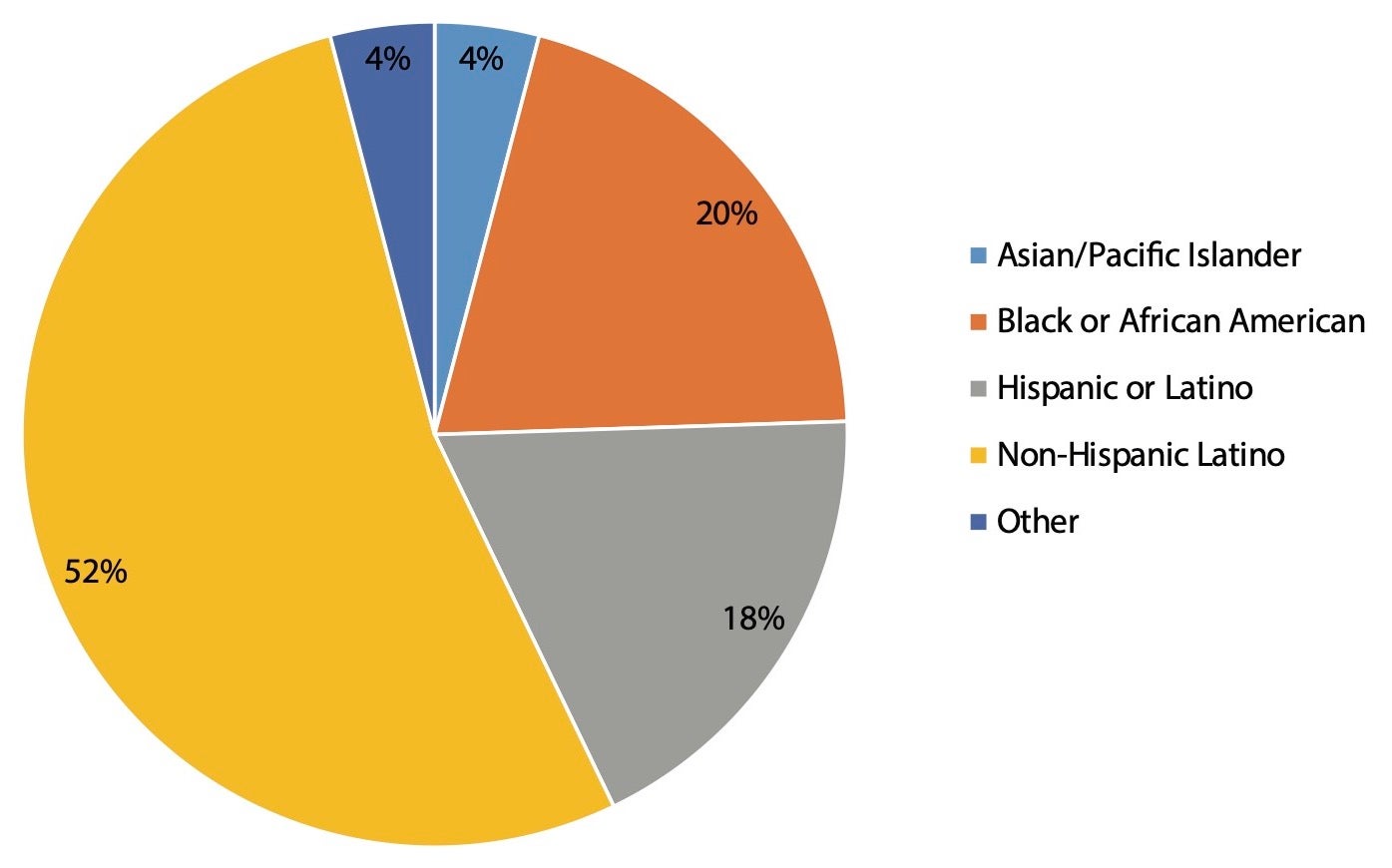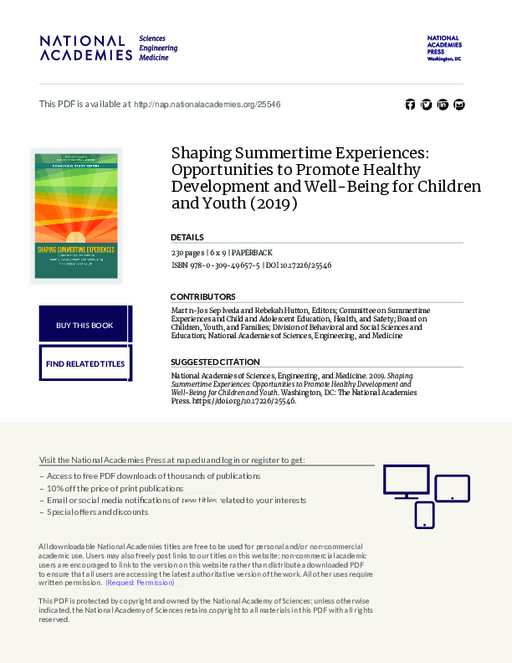Breadcrumb
- Wallace
- Reports
- National Academies Of Sciences R...
National Academies of Sciences Report on Summer Learning

Summary
How we did this
This report is the work of a 13-member study committee. Members were charged with reviewing and evaluating evidence on the effectiveness of summertime programs and activities for children and youth.
This report examines the state of the evidence on summer learning in the United States. Its focus is on the availability, accessibility, equity, and effectiveness of summer learning experiences.
Specifically, the report looks at the impact of summertime experiences on the development of school-age children and youth across. It focuses on four crucial areas of well-being. They include academic learning, social and emotional development, physical and mental health, and pro- and anti-social behaviors. It also reviews the state of science and available literature about the impact of summertime experiences.
Major conclusions
The report overarching conclusions include:
- Summertime experiences can result in important outcomes for children and youth. They include academic, health, social and emotional, and safety issues. But those in disadvantaged communities are at risk for worse outcomes.
- There are opportunities to introduce innovative new programs and extend existing practices taking place during the school year into the summer.
- A community’s circumstances must be central to the planning, development, design, and evaluation of summertime programs and services.
- Meeting children’s basic developmental needs is necessary for summer programs and services to succeed.
- Disadvantaged children and youth face more obstacles to accessing positive summer experiences.
What government and funders can do
Some of the author’s recommendations are that:
- Local governments develop quality management systems to assess existing summer learning experiences. That will also help them address unmet needs.
- Federal and state agencies look for ways to extend school-year funding and resources into the summer.
- Philanthropic funders increase their support for intermediary organizations. They can serve as “central organizing, leadership, fundraising, measurement, and support systems.”
The report was funded by Wallace and the Robert Wood Johnson Foundation.
A related report on summer learning is:
Key Takeaways
- Summertime experiences can result in important outcomes for children and youth.
- Disadvantaged children and youth face multiple obstacles accessing positive summertime experiences.
- Meeting young people’s basic needs must be a prerequisite for summer programs.
- Local governments should develop quality management systems to assess existing summer learning experiences.
- Federal and state agencies should look for ways to extend school-year funding and resources into the summer.
Visualizations
Parks and Recreation Program Participants by Race/Ethnicity

Materials & Downloads
What We Don't Know
- The literature has focused on Black-White and low- high socioeconomic status gaps. What are the summer-related academic learning outcomes and enrichment opportunities for other populations?
- What are the best practices for promoting the mental and behavioral health of children and youth during the summer?
- Does participation in smoking, alcohol consumption, and other risky behaviors change during the summer?
- What are effective practices for promoting pro-social behaviors during the summer?

